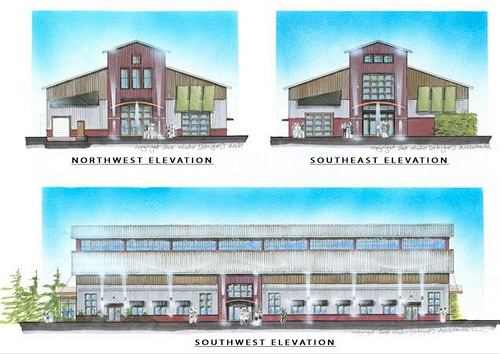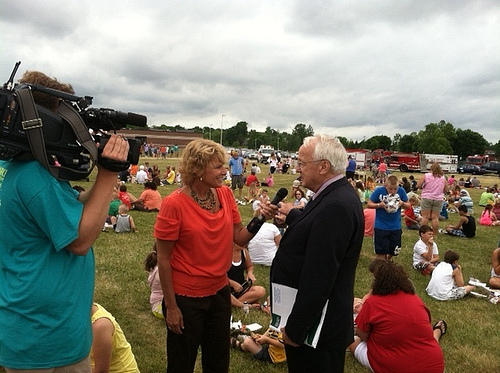USDA Rural Development Michigan State Director James Turner joined Senator Debbie Stabenow and local officials this summer in celebrating the opening of the largest commercial-scale anaerobic digester in the United States.
The Fremont Community Digester is an ambitious new use of a proven technology. Once used chiefly in farms, anaerobic digesters are now coming into their own.
The facility will convert organic waste products – such as farm and food waste – and process it into biogas. Approximately 1,500 local families will derive their power from this previously untapped energy source. Read more »
It’s shaping up to be a good year for students in Indian Country.
For the first time in school history, students at Saginaw Chippewa Tribal College in Mount Pleasant, Michigan can register to take physics thanks to an upgraded laboratory. And at Leech Lake Tribal College in Cass Lake, Minnesota, students were able to take trigonometry for the first time last year. Funded and supported by USDA’s National Institute of Food and Agriculture (NIFA ), both schools made improvements to bolster their students’ learning in the areas of science and mathematics.
NIFA’s Tribal Colleges Education Equity Grant is a noncompetitive program that enhances educational opportunities for American Indians in the food and agricultural sciences. These grants strengthen formal educational opportunities at the associate, baccalaureate, or graduate level at 1994 land-grant institutions, also known as tribal colleges. Read more »

A design concept for the outside of Michigan’s indoor/outdoor market arena. After developing a design concept, Fidel Delgado, AMS Architect, provides cost estimates and a feasibility assessment.
Farmers markets are evolving. They are moving away from seasonal, parking lot produce stands and becoming year-round, self-sustaining, community hubs. As more and more cities and communities look for ways to strengthen their local economies, we’ve seen more emphasis placed on both the infrastructure and the actual structure of their farmers markets. That’s where I come in. Read more »

Lori Cook, aka TV-personality “Maranda,” interviewed me about the importance of the Summer Food Service Program.
Hunger doesn’t take a summer vacation, and the State of Michigan is making sure that nutrition assistance programs don’t either. I recently traveled to the west side of the state to see some of the inspiring work our partners are doing to make sure that no one in their community has to face hunger. Read more »

State Director for Michigan James J. Turner, Under Secretary for Rural Development Dallas Tonsager, homeowner Sherion Jones and Area Specialist Lori Grover.
U.S. Dept. of Agriculture Under Secretary for Rural Development Dallas Tonsager made two visits to Michigan in the last few days and joining him in his travels was Rural Development State Director for Michigan James J. Turner and several of our staff as he crossed the state. Read more »
When he decided to get back into farming five years ago, Tony Andrejczuk faced more challenges than most farmers. Andrejczuk lost the use of his legs after a work accident in 1997, and being able to access his family’s entire farm is one of his biggest obstacles.
Andrejczuk grew up farming with his father and brother on their orchard and field crop farm near Lawrence, Mich. He studied crops and soil science at Michigan State University and planned to return to the family farm to work—but a tough economy forced him to choose a different career. He joined the military and later started a tree business; the accident ended that career.
About five years ago, Andrejczuk helped one of his sons plant a few acres of corn on the farm; they did it for fun, and planned to leave the corn for wildlife. Instead, a neighbor offered to harvest it for them and even paid them for the crop. Read more »



